
views
Handling Your Book

Touch your book with clean hands. Always wash your hands before handling your book. Oil, dirt, and debris on your hands can cause a lot of damage to the cover and pages. These kinds of stains will build up and can't be removed.

Avoid eating or drinking while reading your book. No matter how careful you are, spills are a possibility when you are eating or drinking. Keep your book away from food and beverages to keep it safe from stains. A large enough spill could damage the pages enough to make them unreadable.

Remove your book from the shelf by the middle of the spine. Never pull your book out of a bookshelf by the top of the spine, which can crack or tear over time. Instead, gently push back the two books surrounding it and grab the middle of its spine to remove it. If the book is stuck tightly between other books, gently push it from behind to help remove it.

Use a flat bookmark to mark your place. Never fold over the corners of pages to mark them, which will cause permanent damage. Marking your page by laying the book open flat or placing a large object between the pages (e.g. a large pen) will also damage the pages and spine. While you are reading your book, use a flat bookmark to keep track of your place.
Storing Your Book

Position your book upright with similarly sized books. Position your paperback and small hardback book standing up. Line it up next to books that are approximately the same size to prevent it from warping out of shape. Make sure that your books aren’t leaning, and use book ends if necessary to keep them straight. If your book is too large to store upright, lie it flat with no more than two other books stacked on top of it.

Keep your book out of direct sunlight. UV rays from the sun can cause book jackets and covers to fade over time. This damage is permanent and it will devalue expensive or rare books. Place bookshelves in a shady corner of the room whenever possible. If you can't store your book out of the sun and wish to protect it from fading, purchase a UV-resistant cover for it online or in a book store.

Store your book at room temperature and keep it dry. As a general rule, try to keep your book in a room that is 70 °F (21 °C) or cooler. Make sure that the room is not damp or humid, which may encourage mold to grow. Keep your book away from heaters or heating vents, as excessive heat can cause your book to deteriorate faster.
Maintaining Your Book

Dust your book every month or two. Dust will collect on book in your bookshelf over time. Avoid this by dusting your books at least once every couple of months. Use a clean cloth, feather duster, or vacuum with a soft brush attachment to remove buildup and keep your books tidy. Always dust your book from the spine outward to prevent dust from collecting in the spine.
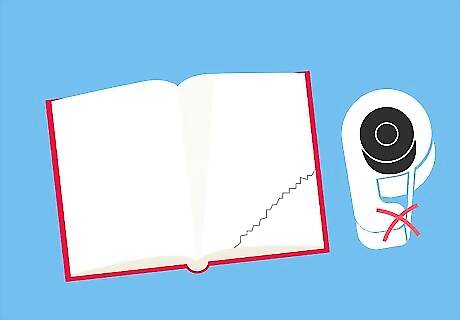
Avoid repairing torn pages with tape. Regular adhesive tape, which is available in most stores, should not be used to repair damages to your book. This type of tape is pressure-sensitive and it can cause more damage to your books over time. Adhesive notes and stickers should also be kept away from your book.
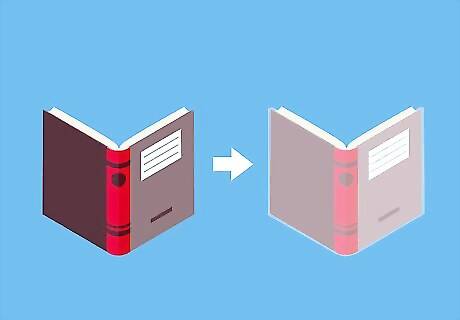
Place a protective cover on your book. Purchase a clear book jacket online or in a book store to place around your book’s cover. The cover should be made of archival material and fit the book without any attachment required. This option is especially important if you want to transport your book and worry about damaging it in the process.
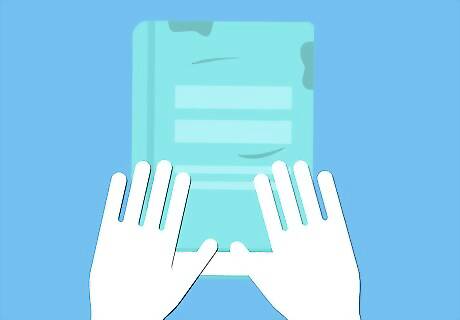
Hire a conservator to repair an older, more valuable book. If you wish to fix a rare and valuable book, ask for information at your local library. A librarian may be able to give you the name of a local conservator who can restore your book. Get in contact with the conservator and discuss their rates (which will vary) before hiring them to fix your book.












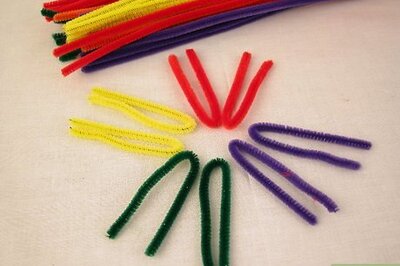
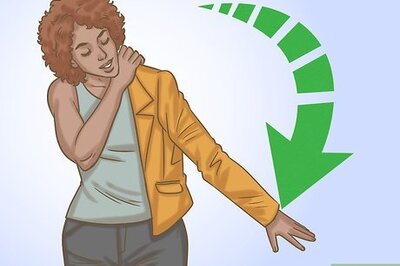


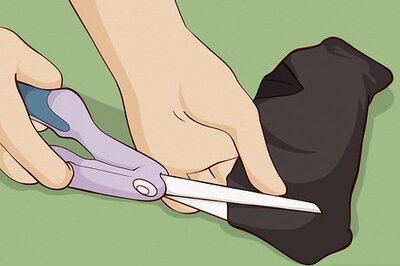


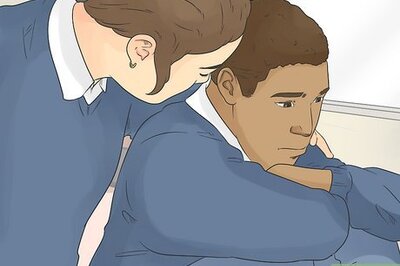
Comments
0 comment